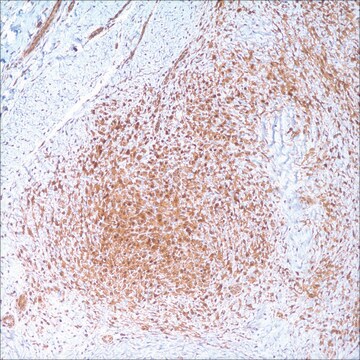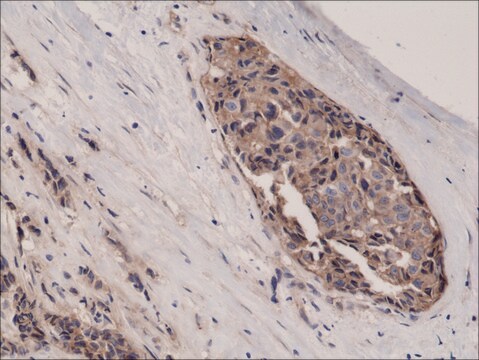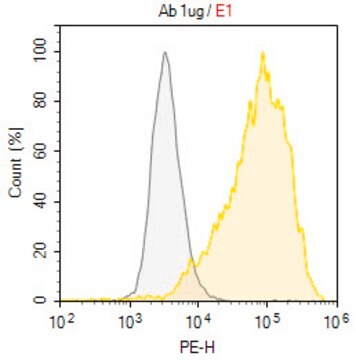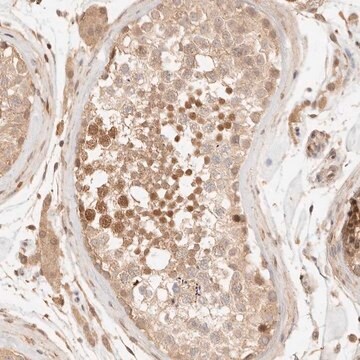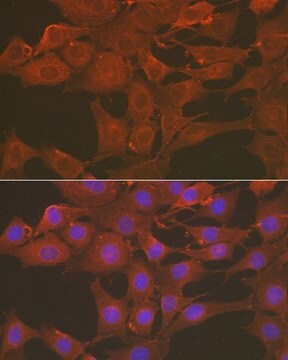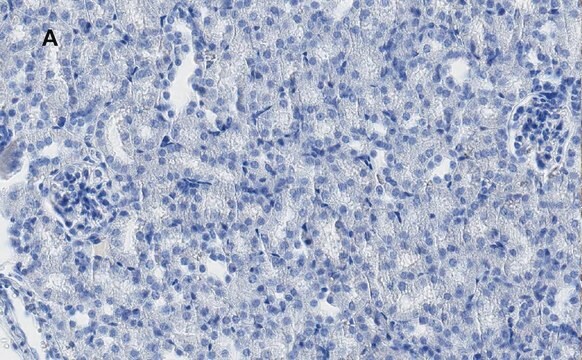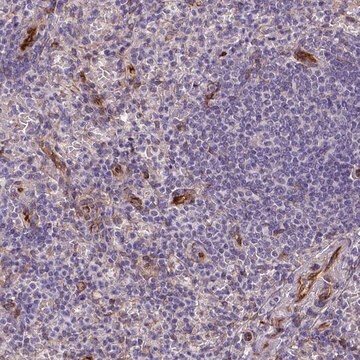ZRB1837
Anti-Phospho-c-Jun (Ser73) Antibody, clone 2B14 ZooMAb® Rabbit Monoclonal

recombinant, expressed in HEK 293 cells
Synonym(s):
Transcription factor AP-1 (UniProt: P05412; also known as Activator protein 1, AP1, Proto-oncogene c-Jun, V-jun avian sarcoma virus 17 oncogene homolog, p39
About This Item
Recommended Products
biological source
rabbit
Quality Level
recombinant
expressed in HEK 293 cells
conjugate
unconjugated
antibody form
purified antibody
antibody product type
primary antibodies
clone
2B14, recombinant monoclonal
description
2B14 Clone
product line
ZooMAb® learn more
form
lyophilized
mol wt
calculated mol wt 35.68 kDa
observed mol wt ~40 kDa
purified by
using Protein A
species reactivity
mouse, human
species reactivity (predicted by homology)
monkey, canine, bovine, rat, horse, zebrafish, porcine
packaging
antibody small pack of 25 μL
greener alternative product characteristics
Waste Prevention
Designing Safer Chemicals
Design for Energy Efficiency
Learn more about the Principles of Green Chemistry.
enhanced validation
recombinant expression
Learn more about Antibody Enhanced Validation
sustainability
Greener Alternative Product
technique(s)
affinity binding assay: suitable
flow cytometry: suitable
immunohistochemistry: suitable
inhibition assay: suitable
western blot: suitable
isotype
IgG
epitope sequence
N-terminal half
Protein ID accession no.
UniProt accession no.
greener alternative category
shipped in
ambient
storage temp.
2-8°C
target post-translational modification
phosphorylation (pSer73)
Gene Information
human ... JUN(3725)
General description
Specificity
Immunogen
Application
Evaluated by Western Blotting in lysates from NIH3T3 cells treated with UV light.
Western Blotting Analysis (WB): A 1:1,000 dilution of this antibody detected Phospho-c-Jun (Ser73) in lysates from NIH3T3 cells treated with UV light (50 mJoules followed by 5 h recovery), but not in untreated cells.
Tested Applications
Flow Cytometry Analysis: 0.1 μg from a representative lot detected Phospho-c-Jun (Ser73) in one million HeLa cells treated with UV light
Immunohistochemistry (Paraffin) Analysis: A 1:100 dilution from a representative lot detected Phospho-c-Jun (Ser73) in human colon tissue sections.
Peptide Inhibition Assay: Target band detection in lysates from NIH3T3 cells was prevented by preblocking of a representative lot with the Phospho-c-Jun (Ser73) peptide, but not the corresponding non-phosphopeptide.
Affinity Binding Assay:: A representative lot of this antibody bound Phospho-c-Jun (Ser73) peptide with a KD of 4.5 x 10-7 in an affinity binding assay.
Immunocytochemistry Analysis: A 1:1,000 dilution from a representative lot detected Phospho-c-Jun (Ser73) in HeLa cells treated with UV light.
Note: Actual optimal working dilutions must be determined by end user as specimens, and experimental conditions may vary with the end user
Target description
Physical form
Storage and Stability
Legal Information
Disclaimer
Not finding the right product?
Try our Product Selector Tool.
Storage Class Code
11 - Combustible Solids
WGK
WGK 1
Flash Point(F)
Not applicable
Flash Point(C)
Not applicable
Choose from one of the most recent versions:
Certificates of Analysis (COA)
It looks like we've run into a problem, but you can still download Certificates of Analysis from our Documents section.
If you need assistance, please contact Customer Support.
Already Own This Product?
Find documentation for the products that you have recently purchased in the Document Library.
Our team of scientists has experience in all areas of research including Life Science, Material Science, Chemical Synthesis, Chromatography, Analytical and many others.
Contact Technical Service